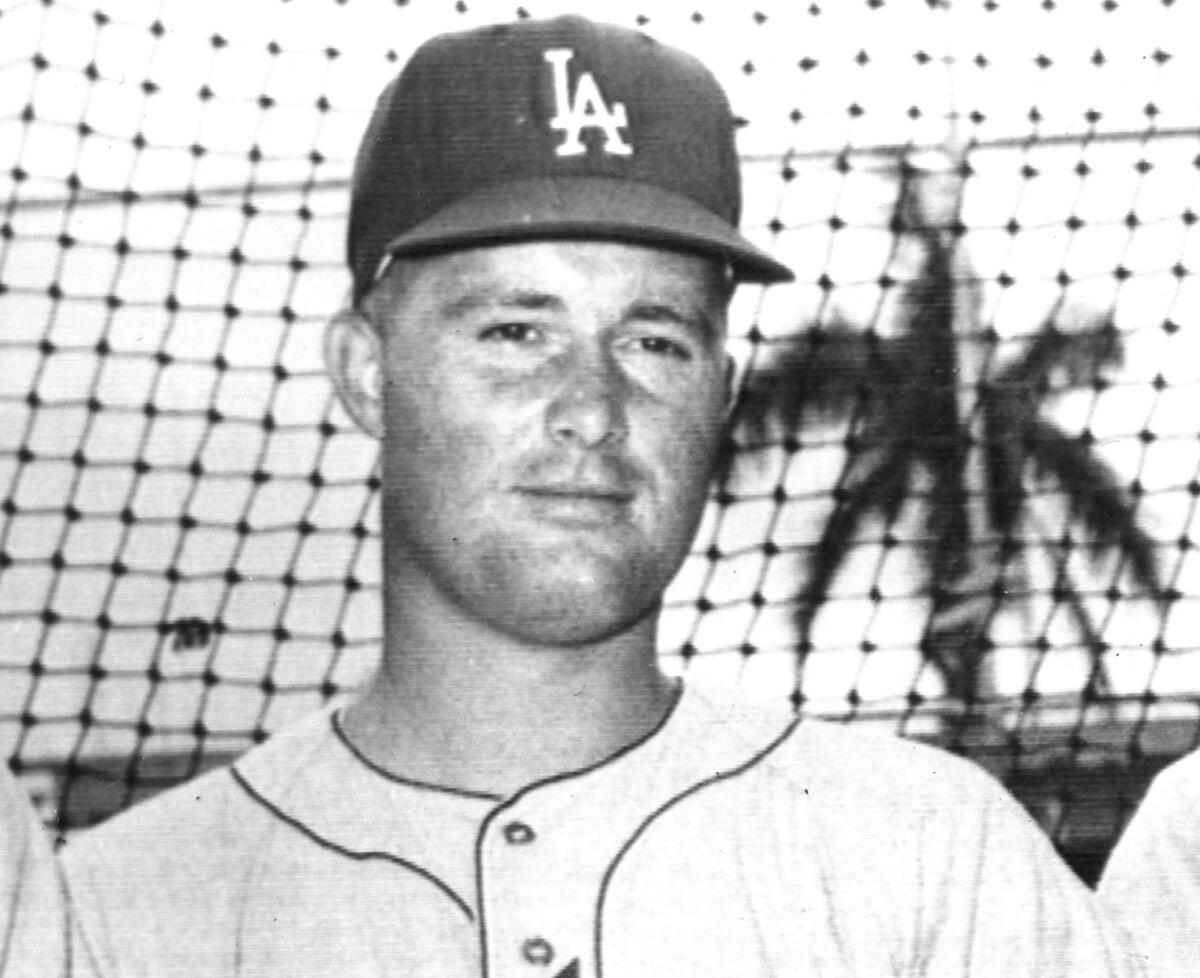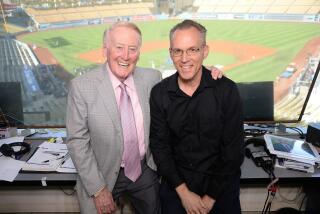Ron Fairly, who starred with USC, Dodgers and Angels, dies at 81

- Share via
Ron Fairly, the reliable, red-haired outfielder and first baseman who spent more than five decades in baseball —21 years as a player, first with the Dodgers and lastly with the Angels, and 30 more as a broadcaster— died Wednesday in Indian Wells, Calif., after a year-long battle with pancreatic cancer. He was 81.
A graduate of Long Beach Jordan High School and a former USC standout, Fairly played his first 11 ½ years (1958-69) in the big leagues with the Dodgers, helping the team to three World Series championships, and he closed his playing career with the Angels in 1978.
“The worst day in a baseball uniform,” Fairly wrote in a 2018 memoir that he co-authored with former Times sportswriter Steve Springer, “was better than the best day I could have had in any other career.”
Fairly turned down a basketball scholarship from UCLA’s John Wooden and went to USC instead. He played only one season with the Trojans, hitting .348 with a team-high nine homers and 67 RBIs as a sophomore center fielder to help USC win the 1958 national championship.
On the advice of his father, Carl, who played 11 minor-league seasons, Fairly turned down a $100,000 offer to sign with the Chicago White Sox to accept a $75,000 signing bonus from the Dodgers in 1958. The reason: The Dodgers were close to home, and then-right fielder Carl Furillo was 36 and nearing retirement.
By the end of that summer, Fairly had advanced through two minor league levels and was promoted to the Dodgers in September. He spent the next 11 seasons with the Dodgers, hitting .260 with 90 homers and 541 RBIs. His career was interrupted only by a six-month stint of active duty in the Army in 1960.
Known for his plate discipline, a short, compact swing that created occasional power to all fields and a distinct lack of speed, Fairly was not a star on Dodgers teams that featured the likes of Sandy Koufax, Don Drysdale, Duke Snider, Gil Hodges, Maury Wills, Frank Howard and Tommy Davis.
But he was a steady contributor to Dodgers teams that won World Series titles in 1959 over the Chicago White Sox and 1963 over the New York Yankees, and he made his biggest post-season impact in 1965, when he hit .379 (11 for 29) with two homers, three doubles and six RBIs in a seven-game World Series win over Minnesota. From 1946 to 1982, Fairly was one of only three Dodgers players to wear No. 6 — the others being Furillo and Steve Garvey.
Fairly was traded to Montreal for Manny Mota and Wills on June 11, 1969, and hit .276 with 80 homers and 331 RBIs in six seasons (1969-74) with the Expos. He made the National League All-Star team in 1973.
Fairly finished out his career with brief stops in St. Louis, Oakland, Toronto and Anaheim, hitting .279 with 19 homers and 64 RBIs and making the National League All-Star team with the Blue Jays in 1977 and hitting .217 with 10 homers and 40 RBIs in 91 games for the Angels in 1978. He had a career average of .266 with 215 homers and 931 RBIs in 2,442 games.
Fairly transitioned to radio and television after his playing career, joining KTLA in Los Angeles as a sports anchor in 1979 and Bob Starr, Dick Enberg and Drysdale in the broadcast booth for the Angels from 1980-86. He left Southern California to call games for the San Francisco Giants (1987-92) and Seattle Mariners (1993-2006, 2007, 2010 and 2011).
He was inducted into the USC Athletics Hall of Fame in 1997, and with Springer co-authored“Fairly at Bat: My 50 Years in Baseball, from the Batter’s Box to the Broadcast Booth.”
Springer said there was a charitable side to Fairly that few saw.
When Hurricane Harvey, a Category 4 storm, hit Houston in August 2017, causing catastrophic flooding, Fairly, then 79, rented a truck in Rancho Mirage, filled it with donated food and clothing, drove more than 1,400 miles to Houston, dropped off the donations at a warehouse and then turned around and drove back home.
“That was Ron — that’s the other side of him that the public didn’t see,” Springer said. “When I told him it was amazing what he did, he said, ‘Nah, that’s the kind of guy I am. If someone is in need, I like to help him out.’ ”
Fairly is survived by his sons, Steve and Patrick.
More to Read
Are you a true-blue fan?
Get our Dodgers Dugout newsletter for insights, news and much more.
You may occasionally receive promotional content from the Los Angeles Times.







